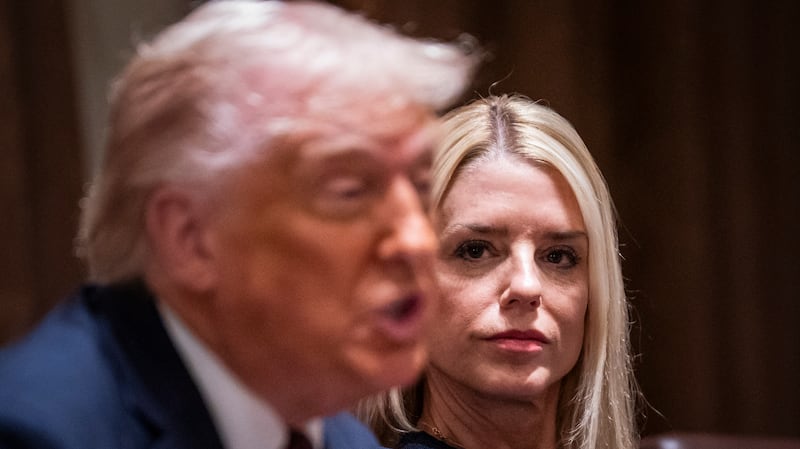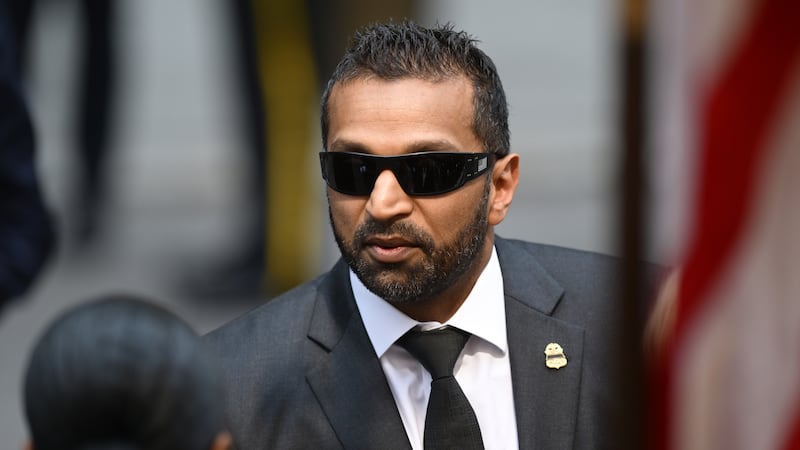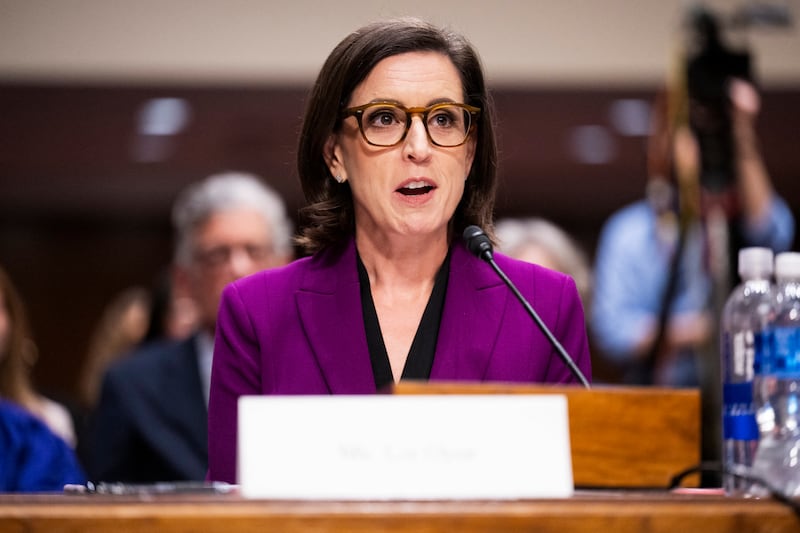He has attacked “radical” judges who rule against him, punished media and law firms he views as hostile, and replaced career civil servants with political loyalists.
Seven months after returning to office, insisting the justice system had been weaponized against him, President Donald Trump has reshaped it to suit his agenda in a way that is unprecedented in American history.
On Friday, that agenda took another vengeful turn, when Attorney General Pam Bondi opened a criminal investigation against one of Trump’s biggest adversaries—New York Attorney General Letitia James.

What stands out about the administration’s latest plot is not that a probe was launched against a Democratic nemesis, but the rationale for launching it.
James was elected New York’s attorney general in 2018, vowing to pursue Trump if she won office. In 2023, she successfully sued him after a judge agreed he committed civil fraud by inflating the value of his properties for financial gain. Trump, who now owes more than $500 million in penalties, was furious.
Two years later, the DOJ has subpoenaed James and accused her of “deprivation of rights,” a crime that involves a government official violating someone’s constitutional rights in an official capacity.

Trump is making good on his promise to “investigate the investigators.”
Critics say the latest probe is one of the most blatant examples of the president’s bid to turn the justice system into his own personal weapon, but it’s merely part of an ongoing pattern.
At the FBI, Trump’s handpicked director Kash Patel came into the role vowing to purge the law enforcement agency of “Deep State” operatives or anyone he believed didn’t support Trump.
On Thursday, two longstanding FBI agents, Brian Driscoll and Steven Jensen, became the latest casualties.
Jensen had been the assistant director of the FBI’s Washington field office, while Driscoll served briefly as acting director and had resisted demands earlier this year for the names of agents who investigated the Jan. 6 attack on the U.S. Capitol.

“This is fear and loathing in the FBI,” says CNN intelligence analyst and former FBI assistant director John Miller.
“Agents, analysts, employees wonder: Is the case that I’ve been assigned to something that’s going to make somebody at the Justice Department angry?”
The ongoing firestorm surrounding sex trafficker Jeffrey Epstein and his convicted accomplice Ghislaine Maxwell is another cautionary tale.
As MAGA rage intensified over the Epstein files last month, Trump tried in vain to kill the story, even going so far as to denigrate his own base for demanding more transparency.
When that didn’t work, he gave the green light for his Director of Intelligence, Tulsi Gabbard, to release a highly classified document on the so-called Russia “hoax.”
This was then used to accuse Obama officials of a “treasonous conspiracy” to undermine Trump’s first-term agenda by linking him to Russian meddling in the 2016 election.
Democrats, most notably Obama himself, dismissed the report as a “weak” attempt to distract from the Epstein scandal.
But Bondi doubled down this week, launching a Grand Jury probe that could pave the way to potentially prosecute people Trump claims were at the center of the plot, including former FBI Director James Comey, former CIA Director John Brennan, and former Director of National Intelligence James Clapper.

“Pam Bondi made it clear from day one that she views the Department of Justice as Donald Trump’s personal law firm,” Liz Oyer, a former DOJ pardon attorney, told the Daily Beast.
“It’s eroding the credibility of the department with courts and with the American public, and it is likely to take decades, if not generations, to repair the institution.”
Oyer was appointed in 2022 under President Joe Biden, advising him on the backlog of thousands of individuals seeking presidential clemency.
But in March, her dream job ended abruptly after she was asked to make a recommendation to Bondi to reinstate actor Mel Gibson’s gun rights, which were rescinded after a domestic violence conviction in 2011. Oyer reviewed the case and refused. Within hours, she says, she was terminated.
Another recent casualty was Maureen Comey, the daughter of former FBI director James Comey, who was suddenly fired on July 16 from her job as assistant U.S. attorney for the Southern District of New York.
The 36-year-old had prosecuted Epstein and Maxwell, and sources say she knew more about the case than anyone—including the lengths Maxwell would go to in order to get her sentence quashed.
“In short, the defendant apparently decides when she wishes to disclose facts to the Court, and those facts shift when it serves the defendant’s interests,” reads a 2022 sentencing memo, co-signed by Comey.
A few days after she was fired, Trump sent Deputy Attorney General Todd Blanche, the president’s former personal attorney, to meet Maxwell in prison, where he quizzed her on more than 100 people connected to the late child sex predator.
Soon after, the department transferred Maxwell to a minimum-security prison camp—a move that many say is highly unusual for someone with a 20-year prison sentence for sex crimes.
Meanwhile, Trump has repeatedly refused to rule out the possibility of giving her a pardon or commutation. Coincidence or cover-up?

The Trump administration, on the other hand, makes no apologies for reversing what it views as “lawfare” under the Biden administration.
After all, the president faced four criminal indictments by Democrat prosecutors ahead of the 2024 election: two for trying to subvert Biden’s 2020 victory, one for mishandling classified documents, and one for paying hush money to cover up a sex scandal with a porn star. He also got slugged by James’s civil court case.
But Trump, who has repeatedly said he’s the victim of a witch hunt, made his intentions clear on the campaign trail: “I am your warrior. I am your justice. And for those who have been wronged and betrayed, I am your retribution.”
Promises made, promises kept.







